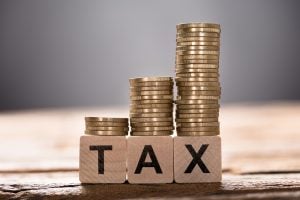[ad_1]
A South African law firm has published a short essay on proposed tax legislation for cryptocurrency in the country. Cox Yeats Attorneys, a Durban-based firm, argues that the Taxation Laws Amendment Bill, published by the National Treasury in July, will be bad for the digital asset industry, according to local media reports.
Also read: Uganda to Regulate Cryptocurrency Use as Fake Bitcoin Schemes Surge
Law Would ‘Significantly Deter’ Crypto Use
South Africa’s National Treasury published the draft virtual currency law on July 16 in response to rising public interest in bitcoin and other cryptocurrencies. The bill is the country’s first attempt to regulate the use of crypto assets, which have been largely unregulated until now. It includes proposed changes to both the Income Tax Act and the Value Added Tax (VAT) Act for cryptocurrency taxation purposes.

“The amendments, if promulgated in their current form, will significantly deter the use of cryptocurrency in South Africa for both trading and investment purposes,” Wade Ogilvie, a partner at Cox Yeats Attorneys, wrote in an article that was originally published in The Sunday Tribune. Changes to the income tax law will define cryptocurrencies as “financial instruments,” he said. That will place them in the same category as loans, debts and common stocks.
Ogilvie said this could have “a ripple effect throughout” South African tax legislation. He cited Section 22 of the Income Tax Act, which “provides for the determination of the value of undisposed trading stock to be included in taxable income.” He also pointed to another section of the same law that specifically excludes financial instruments for this purpose.

“(This) means that those who trade in cryptocurrency may not benefit from valuing their undisposed cryptocurrency using the valuation method contemplated in Section 22,” Ogilvie said.
“The amendment may also stifle investment in fintech companies in South Africa as section 11D of the Income Tax Act, which provides an allowance for companies that invest in research and development in South Africa, specifically excludes the creation or development of financial instruments. This would include companies who mine or develop cryptocurrencies.”
Growing Cryptocurrency Adoption
Bitcoin adoption has grown sharply in South Africa over the past few years, in spite of regulatory concerns and falling cryptocurrency prices. The country, Africa’s most sophisticated economy, recently hosted its first bitcoin ATM and has consistently ranked as the highest in the world for search interest in “bitcoin,” according to Google Trends data.
Regulators have been largely cautious in their approach to cryptocurrency, as they are trying to avoid triggering a domestic stampede into a technology that could change the face of the global financial industry. The South African Reserve Bank, the country’s central bank, has warned that cryptocurrency isn’t “legal tender.”

Taxpayers in the country “are merely required to declare their gains and losses” involving crypto asset transactions. The South African tax regulator will then “look at the intention of the taxpayer when determining whether the income is capital or revenue in nature.”
Bad Law
Ogilvie said the draft law will also seek to add “the acquisition or disposal of any cryptocurrency” to a section of the existing income tax legislation that “deals with the ring-fencing of assessed losses of certain trades.” This, again, will shortchange digital currency investors.
He wrote:
Although taxpayers who trade in cryptocurrency may set-off their assessed losses from income derived from that trade, they may not set-off their assessed losses against income derived from other trades.
The bill proposes amendments to the VAT legislation that would include defining “financial services” as the “issue, acquisition, collection, buying or selling or transfer of ownership of any cryptocurrency.”
“As cryptocurrency is not considered legal tender, VAT vendors providing wholly tax-deductible supplies who accept cryptocurrency as a form of payment will not be able to on-sell the cryptocurrency and claim the full input VAT as their business will be considered as one which supplies mixed supplies,” Ogilvie explained. “Accordingly, only a portion of the input VAT will be deductible.”
He said that in its current form, the Taxation Laws Amendment Bill “appears to curtail investment as opposed to encouraging it. The use of cryptocurrencies is on the rise and it may be that (the) Treasury, and the Reserve Bank, are forced to address the insurgence sooner than expected.”
What do you think about the proposed cryptocurrency taxation law in South Africa? Let us know in the comments section below.
Images courtesy of Shutterstock.
Express yourself freely at Bitcoin.com’s user forums. We don’t censor on political grounds. Checkforum.Bitcoin.com.
[ad_2]
Source link
